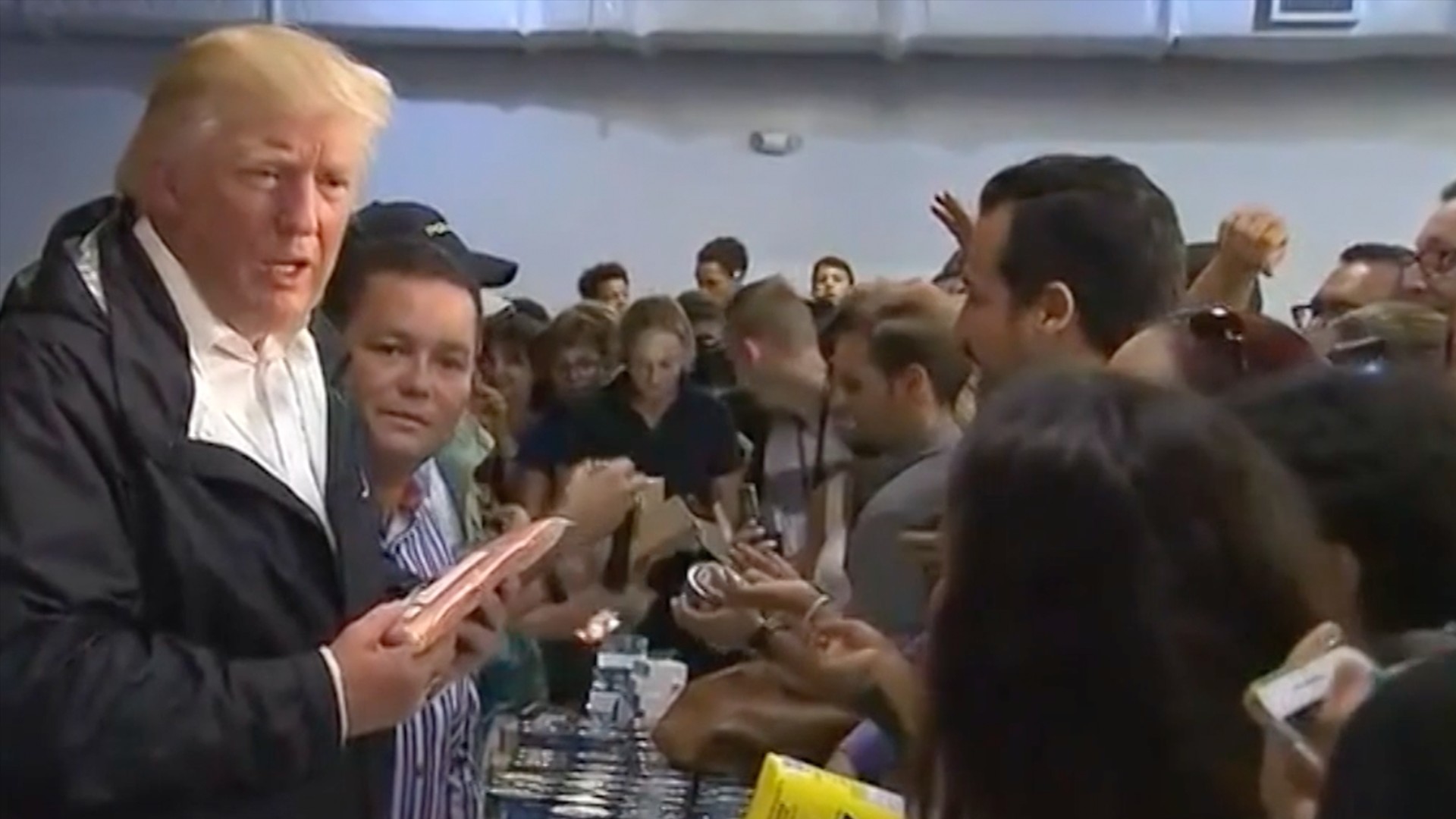"The current bill is the first step, but more is required. Senator Kirsten Gillibrand (D-NY) has recently called for a Marshall Plan-style recovery effort for Puerto Rico, which is the right approach to ensure Puerto Rico not only stabilizes but comes back stronger than before," Frankie A. Martinez-Blanco, a Puerto Rican political organizer and former Obama administration alum based in Brooklyn, told VICE Impact.Nearly a month on after the Category 4 Hurricane María made direct landfall on Puerto Rico, the scale of the human and environmental tragedy, and scope of what is needed to help repair the damage is becoming increasingly clear — it is immense.
Check out more videos from VICE:

"Given Puerto Rico's lack of congressional representation and ability to vote for President, the island lives at the mercy of a Washington that knows its actions will bear little consequence on the outcomes of future elections. We are seeing the consequences of this in the Trump administration's lackluster recovery effort and Congress' paltry relief appropriations bill that recently passed the House of Representatives," Martinez-Blanco explained.And with a large aid package likely to take time, and one out of two hospitals still without electricity, several groups and companies have already stepped in launched sustainable energy initiatives to aid the island's recovery, but also its long-term resilience.The nonprofit Empowered By Light in partnership with Sunrun—the nation's largest residential solar company—has partnered with local leaders to deliver and install solar micro-grids, water desalination and purification systems, and water production systems, and already installed a 4kW solar array with battery storage at the Barrio Obrero fire station in San Juan, and a second system at another fire station on Friday.
Billionaire Tesla CEO Elon Musk has also joined in conversations about overhauling Puerto Rico's energy system, which previous to the hurricane relied on power plants that were on average 44 years old and relied on outdated oil-fired systems, and since the hurricane, fuel generators."The Tesla team has done this for many smaller islands around the world, but there is no scalability limit, so it can be done for Puerto Rico too," Musk tweeted, adding that the decision to transition the island to a sustainable energy "would be in the hands of" local government. "Let's talk," Puerto Rico Governor Ricardo Rosselló responded on Twitter, later posting an update that his and Musk's "teams are now talking; exploring opportunities."With a large aid package likely to take time, and one out of two hospitals still without electricity, several groups and companies have already stepped in launched sustainable energy initiatives to aid the island's recovery.
The group will be delivering tips and training both online and in person, to help Puerto Ricans and allies campaign and advocate for support. "We expect this to lead to calls to congressional members, petitions, rallies, strategic partnerships — all of that — but more importantly, we want to couple those tactics with experience. Our team knows how Washington works and we want to put that knowledge into advocates' hands so the right levers and pressure points can be utilized to help Puerto Rico recover," Fuentes added.READ MORE: Weeks After Hurricane Maria Hit, and Puerto Rico's Recovery Efforts Still Need Your Help
And while Puerto Ricans in the U.S. are standing up for those on the islands, it's not enough. "The diaspora can only do so much. In this fight, we need as many allies as possible for the long-term recovery effort of the island," Martinez-Blanco emphasized.To stand up with Puerto Ricans, write to and call your Congress members to let them know that the current humanitarian crisis should be dealt expediently and with the resources afforded to all other U.S. citizens.Hurricane María recovery efforts are still very much underway . Find out how you can support them.BoricuActívatEd is looking for volunteers, they especially need videographers, designers, and developers. Email them to help out and get involved."Since federal aid is the only way to rebuild Puerto Rico, the moment Hurricane María hit I knew that our Island's lack of influence on Capitol Hill was going to be a huge hurdle for our recovery."